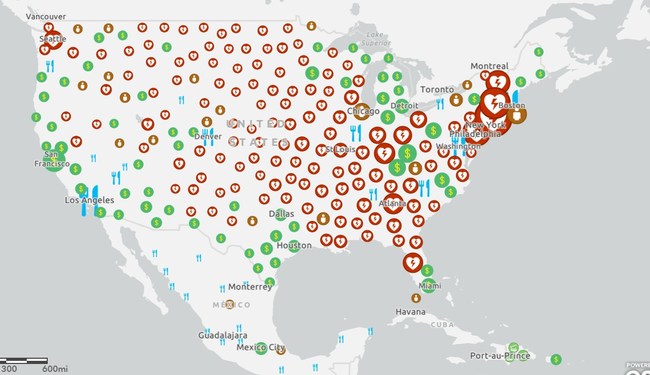AUSTIN, Texas – A team of volunteers including students and alumni at the University of Texas at Austin has created a global COVID-19 Community Resource Map to help identify and locate essential community resources.

The online map identifies the locations of testing sites, unemployment support, meal relief, homeless shelters, and community networks throughout the U.S. The map was launched by GroundBreakers, a global network of community leaders operating in 51 countries with an emphasis on local, grassroots efforts. GroundBreakers was co-founded in 2017 by UT Austin alum Sebastian De Beurs and Rara Reines.
“While epidemiologists have led a worldwide effort to map COVID-19 cases, few have mapped the relief efforts available in those communities,” said De Beurs. “Whether you are an elementary school student in need of meal relief or a recently unemployed adult, our goal is to help locate the resources available to you.”
GroundBreakers volunteers began work on the project in March with core teams of students from the University of Texas at Austin and University of Georgia leading the development of the map.
Within the first 2 months of the effort, volunteers mapped more than 15,000 resources in the U.S., including food banks, meal relief programs, unemployment centers, homeless shelters, mutual aid groups, and coronavirus testing sites. “Our ultimate goal is to increase the visibility and accessibility of pandemic relief resources through the power of open data,” said Edith Muleiro, who joined shortly after her university classes moved online.
The resource map is now being used and shared by thousands of community leaders nationwide in their response efforts to COVID-19, and volunteers continue to update the map as they identify new resources. The map has recently been featured by NPR, Atlanta Journal Constitution and on the Vital Voices of Resilience podcast series.
Volunteers for GroundBreakers are calling on people nationwide to add their resources to the map and support the effort
“If you are aware of or leading coronavirus response resources, please share that location so the effort can aid those in need,” said Reines.
The map is available online at bit.ly/COVID19resourcemapping